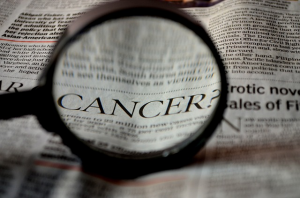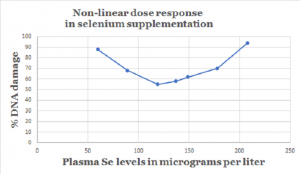
An inverse association between serum selenium concentrations and prostate-specific antigen levels was especially strong in the following sub-groups of study participants [Karunasinghe 2019]:
- men below the age of 55 years
- men who never smoked
- men carrying the GPX1 rs1050450 T allele
- men with dietary intakes above the recommended daily intake for zinc (11 mg)
- men with dietary intakes below the recommended daily intake for vitamin B12 (15 mcg)
Moreover, the increase in serum selenium status and the resulting post-supplementation serum selenium status were significantly dependent upon baseline serum status [Karunasinghe 2019].
The overall gain in serum selenium levels from supplementation declined at a rate of 0.828 microg/L with each one microg/L increase in baseline serum selenium level [Karunasinghe 2019].







